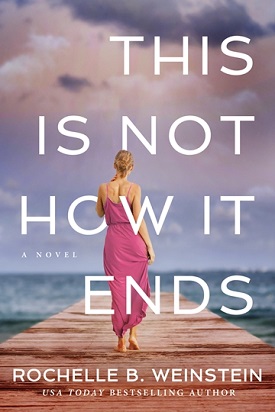 Synopsis:
Synopsis:
Charlotte and Philip meet when they are passengers on the same flight, and form an instant and deep bond. Before long, Charlotte agrees to move to Philip’s home in Florida, leaving behind the life and career she has known, and they plan to marry.
But as they should be getting closer, Charlotte feels Philip gradually slipping away. Philip’s excessive absences leave Charlotte dissatisfied with their relationahip and yearning for more.
Then, she meets Ben because she is in the right place at the right time to avert catastrophe. She resists the pull she feels toward him, even as the single father is there for her in ways she never knew she desired.
Charlotte finds herself torn between the love she thought she wanted . . . and the one she knows she needs.
A hurricane strikes Islamorada, and stunning revelations challenge Charlotte’s loyalties and upend her life. Forced to reexamine the choices she’s made — and has yet to make — Charlotte embarks on an emotional journey of friendship, love, and sacrifice. She knows that forgiveness is a gift . . . and the best-laid plans can change in a heartbeat.
This Is Not How It Ends is a moving novel of hearts lost and found, breaking and healing.
Which takes more courage —- holding on or letting go?
Review:
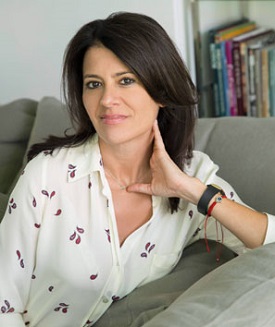
Rochelle B. Weinstein has penned five novels: What We Leave Behind, The Mourning After, Where We Fall, Somebody’s Daughter, and This Is Not How It Ends. Her former career handling advertising and promotions for film studios and record labels led her from her native Florida to Los Angeles, and back again. There, she married and devoted herself to her family, raising twins, and her next dream job as a full-time writer came to fruition. About that she observes that “[l]ife has a funny way of happening this way. Doors open and close. Avenues await. One path leads to another. I thought life was fun before, but nothing is more fun than this.”
The joy she derives from writing is evident in her work. This Is Not How It Ends opens with Charlotte taking her beloved dog Sunny for a morning walk in beautiful Islamorada, Florida. Charlotte’s first-person narrative begins: “I’ve heard it said that life is about choices. Paths stretch out ahead of us — sometimes, we make conscious decisions and other times, fate intervenes and chooses for us.” Indeed, Weinstein effectively illustrates how, had Charlotte taken a different route on her walk that morning, her life might have unfolded entirely differently. Instead, she happens upon a little boy who asks if he can pet Sunny and suddenly suffers a medical emergency. When his father panics and freezes, Charlotte jabs the EpiPen into Jimmy’s thigh and saves his life. Ironically, Charlotte is employed by a local doctor who has had success employing unconventional methodologies to treat allergies, and Jimmy becomes a patient.
Through chapters alternating between present-day and two years earlier, Charlotte relates how she met Philip on a flight from Miami back to her Kansas City home where she was a teacher. Philip “came crashing down the narrow walkway,” taking his anger out on a flight attendant because his first-class seat had “dissolved into economy.” Once settled into his seat, however, he calmed down, bought drinks for his fellow passengers, and proceeded to charm Charlotte. Although he had been boorish, flaunting his financial status, he was undeniably worldly and sophisticated, with “something in his eyes that was too forgivable and too blue.” And thus their relationship began over a discussion of Charlotte’s limited travel experiences and love of literature. “I’ve been everywhere I need to go. Places you’ve never been . . . would never understand . . .” she tells Philip, referring to “the stories that kept me alive and took me all over the world — their destinations only rivaled by the depth of what I’d come to understand about living . . . about life. ‘You don’t always have to physically go somewhere to experience something magical.'”
Weinstein explores Charlotte’s deep, but unsatisfying love for Philip, a man who plainly adores her and is able to provide her with every physical comfort, but fails to supply the deep emotional connection Charlotte craves. She agrees to give up her teaching career and move to Florida with him, but he refers to home as “[s]uch a fluid term.” As Philip leaves Charlotte alone for extensive periods of time while he travels the world on business, she becomes acquainted with Ben, the handsome chef and restaurateur who is still mourning his wife, and Jimmy. She finds herself increasingly drawn to Ben, even though she is devoted to Philip. Still, she finds herself wondering if Philip’s commitment to her has waned, whether he has become bored with her, and if their engagement was a mistake. Their emotional distance leaves her frustrated, lonely, and bewildered by her own neediness. She wonders where and if she truly fits into Philip’s world, despite his assurances that he loves her and misses her when they are apart.
Charlotte learns that Philip and Ben have a long-standing friendship, which only complicates her burgeoning feelings for Ben. All she had wanted was a live with Philip, and she finds the deepening connection she and Ben share horrifying. Her relationships with the two men are unique, but each is intense. While Philip loves her, Ben listens to her.
As Charlotte’s emotional turmoil threatens to tear her apart, Weinstein injects a heartwrenching turn of events that causes Charlotte, along with readers, to view everything from a different perspective. Suddenly, Charlotte’s world is again upended, but she gains new insight into her relationships with both Philip and Ben, as well as a deeper understanding of both men, and her own feelings toward them.
Weinstein’s characters are fully developed — likable and empathetic. Charlotte’s struggle for the kind of love she has always wanted and her deep disappointment at not having found it with Philip is palpable and believable. Ben and his son are reeling from the tragic loss of his wife, and his struggle to establish a new normal for himself and his child is portrayed credibly and compassionately. And Philip, the bigger-than-life businessman whose life, like Charlotte’s, has been shaped by loss and abandonment, is a soulful revelation and his presence gives the story life. His choices bring Charlotte to a place of “less thinking and more living” where she recognizes and appreciates his capacity for giving.
Weinstein weaves a tangle of longing, lack of fulfillment, and striving for more, into a cohesive story about assumptions as to how love is or should be demonstrated, choices, forgiveness, and, ultimately, the power of love. Her writing is insightful and elegant, her examination of her characters’ inner demons unsparing, but compassionate. This Is Not How It Ends is full of surprises that propel the story forward, never losing momentum until it reaches a conclusion that feels logical, natural, and somehow inevitable. Which is, of course, the point of Weinstein’s poignant, engrossing tale.

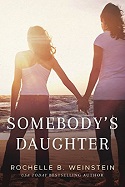
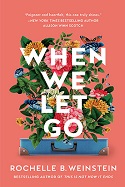
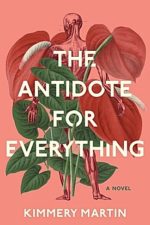

Comments are closed.